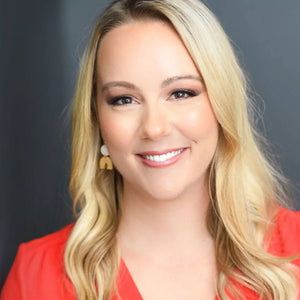The Certification Paradox: Why We Choose Transparency Over Badges

As a Registered Dietitian who founded a supplement company, I've spent countless hours wrestling with a question that keeps many wellness entrepreneurs awake at night: Should we pursue third-party certifications?
The answer seems obvious, doesn't it? Of course, you should. It's what consumers expect. It's what competitors do. It's what makes products feel trustworthy on a crowded shelf.
But here's what I've learned after years of evaluating certification programs and building FullWell from the ground up: Sometimes the obvious answer isn't the right one.
The Uncomfortable Truth About Standards
Let me share something that might surprise you: Our internal standards, quality control procedures, and testing protocols are more stringent and comprehensive than what third-party certifications require (which is often an annual review after only one single lot is tested).
Read that again.
This means that pursuing these certifications would be purely performative—a marketing checkbox that actually lowers the bar we've set for ourselves. It would be like a chef who sources ingredients directly from regenerative farms, tests every batch for contaminants, and maintains pharmaceutical-grade kitchen standards, putting up a sign that says "We wash our hands."
Sure, hand-washing matters. But when you're already doing so much more, highlighting the minimum feels disingenuous.
The Real Cost of Performance Theater
Here's where it gets complicated. Consumers have been trained to look for these certification badges. They provide peace of mind. They simplify decision-making in an overwhelming marketplace. I understand and respect that.
But what happens when we adopt certifications that we know don't go far enough?
We're essentially putting our stamp of approval on standards that, frankly, aren't stringent enough, especially for vulnerable populations like pregnant women. We're telling our customers, "This is what quality looks like," when we know it's actually just the starting line. Some of the perceived more stringent third-party certifications require testing of a single lot with one annual review. We test every single lot, and share those results instead of our customers relying on a stamp of approval from an organization that doesn’t have strict enough standards.
By pursuing these certifications, we'd be contributing to a system that allows companies to check boxes rather than push boundaries. We'd be saying that meeting minimum requirements is enough when we know, especially during critical life stages like pregnancy, that "enough" isn't actually enough.
The Integrity Question
I've evaluated dozens of certification programs over the years. Just recently, I conducted another comprehensive review of the current landscape. Each time, my gut delivers the same message: This isn't aligned with why I founded FullWell. In fact, just last week I was told that our testing and overall quality control requirements are stricter than those of a Fortune 500 company producing dietary supplements. I can no longer count the number of times a manufacturer has told me that our testing requirements are “more than xyz huge brand” or “unnecessary/not required”.
The decision always comes back to integrity. Not the kind you put on a website's "About Us" page, but the kind that sits heavy in your chest when you're alone with your thoughts at 2 AM.
Can I, in good conscience, pursue certifications that add no actual value to our products? Can I signal to consumers who trust us that these certifications equal high quality when I know they're just the floor, not the ceiling?
The answer, for me, is no.
Radical Transparency: The Harder Path
Instead of collecting badges, we've chosen something more challenging: radical transparency.
And I don't mean the performative kind where you highlight something inconsequential with enough marketing dollars and repetition that it feels important. I'm talking about "show the receipts" transparency.
Don't tell. Show.
This means:
- Testing through independent laboratories and sharing the actual results openly for every single lot
- Clearly explaining our quality control programs and why each step matters
- Making decisions about quality and safety without the marketing team in the room
- Admitting when something doesn't meet our standards and explaining what we're doing about it
- Sharing our reasoning, even when it goes against industry norms
This approach is harder. It requires more education. It demands more from our customers by asking them to look beyond badges and actually understand what quality means. It's vulnerable. When you show everything, there's nowhere to hide.
The Paradox We Live In
Here’s the paradox: By not pursuing certifications, we risk losing well-intentioned customers who’ve been taught to rely on badges to guide their decisions. We may look less credible to those who don’t have the time or desire to dig deeper. We may even appear arrogant, as if we’re claiming to stand above the system. And honestly, I get it. No one should have to become an expert in dietary supplement testing just to feel confident their product is safe.
That confusion is not the fault of consumers—it’s the inevitable outcome of an industry where huge sums of money are funneled into marketing symbols that don’t always reflect real quality. Faced with that landscape, leaning on certifications seems like the most responsible option.
But here’s where we’ve chosen a different path. Instead of adopting certifications we don’t believe in, we go further: we test more, document more, and share more. We explain our decisions openly, even when they’re nuanced. This is harder, yes—but it’s also more honest.
The path forward is two-fold. First, supplement companies must take responsibility for acting with integrity, setting higher standards than what a marketing badge can convey. Second, we can help consumers by making quality visible and understandable—offering transparency in ways that don’t require them to be scientists or regulators.
When companies rise to that level, consumers can simply do what they deserve to do: trust the products they choose to put in their bodies.
What This Means for You
Whether you're a consumer, a practitioner, or a fellow entrepreneur, I want to leave you with this: Question everything, including certifications.
Ask companies not just what badges they have, but what they actually test for, at what part(s) of the manufacturing process and how often. Ask for results, not promises. Ask why they make the choices they make. Ask what happens when something fails their internal standards.
And if you're building something yourself, ask whether you're making decisions for the right reasons. Are you choosing the path that looks good or the path that is good? Are you solving for perception or for reality?
The Bottom Line
We haven't pursued third-party certifications not because we can't meet them, but because we've already exceeded them. To adopt them now would be to endorse standards we don't believe are sufficient, especially for the pregnant women we serve.
Instead, we're betting on something riskier but more honest: That if we show our work—all of it—people will see the difference.
This isn't the easy path. It's not the obvious path. But it's the only path that lets me sleep at night, knowing that every decision we make is in service of actual quality, not the appearance of it.
Because at the end of the day, the question isn't whether you have the right badges. It's whether you're doing right by the people who trust you with their health.
And that's a standard no third party can certify.
What's your take? Have we become too reliant on certifications as shortcuts? How do you evaluate quality in the products you choose? Would you like to better understand how to evaluate the quality of supplements? I'd love to hear your thoughts in the comments.




